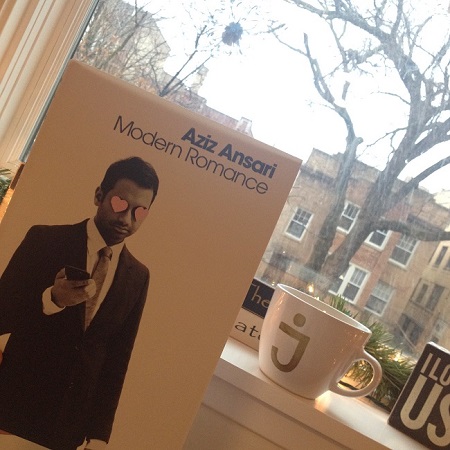Life and Relationships in the Digital Age
Every college student with a smartphone and a potential romantic life knows how quickly the phone, a seemingly innocent communication device, can become a toxic incubator for second-guessing and unnecessary stress. You think you’re a reasonable person, but then you find yourself obsessing over a message marked “read,” wondering why you haven’t received a reply.
Stand-up comedian Aziz Ansari feels your pain. He knows how unpleasant it is to stare impotently at a screen waiting for a message that never arrives. He writes in his book, Modern Romance, “Do I call? Do I text? Do I send a Facebook message? Do I send up a smoke signal? How does one do that? Will I set my rented house on fire? How embarrassed will I be when I have to tell the home’s owner, actor James Earl Jones, that I burned his house down trying to send a smoke signal?”
Technology has changed our lives and the way we interact with one another. Whether it’s for the better, I’m not quite sure. “Social media and the internet are introducing all kinds of new options into social and romantic life. And while it’s exciting, sometimes even exhilarating, to have more choices, it’s not necessarily making life easier,” writes Ansari.
“We live in a culture that tells us we want and deserve the best, and now we have the technology to get.” This perfect thing we’re looking for applies to every aspect of our lives. Unlike in previous generations, where girls married their high school sweetheart, or found a gentleman who was capable of providing for a middle class lifestyle, now, millennials refuse to settle for anything less than someone who is their soulmate, together with whom they can create some sort of perfect harmony. This also applies to something as seemingly simple as looking for a place to have dinner. Let’s say you’re feeling Mexican food. As opposed to just going to the closest place or the first recommendation, you instinctively traverse Yelp, reading all the various reviews, driven to find “something better.” By the time you get through the list and decide on a place, they’re either already closed or completely booked, so you repeat the process to choose another restaurant. You end up being either hungry, because you took too long and everything closed, or, unsatisfied, because you ran out time or simply gave up, and settled for something less than ideal.
So, does technology empower us by giving us access to practically all the possibilities in the world? Or does it overwhelm us and make our lives harder by making everything more complicated? I’m not quite sure. But Aziz Ansari presents a hilarious investigation of this phenomenon in his book.
